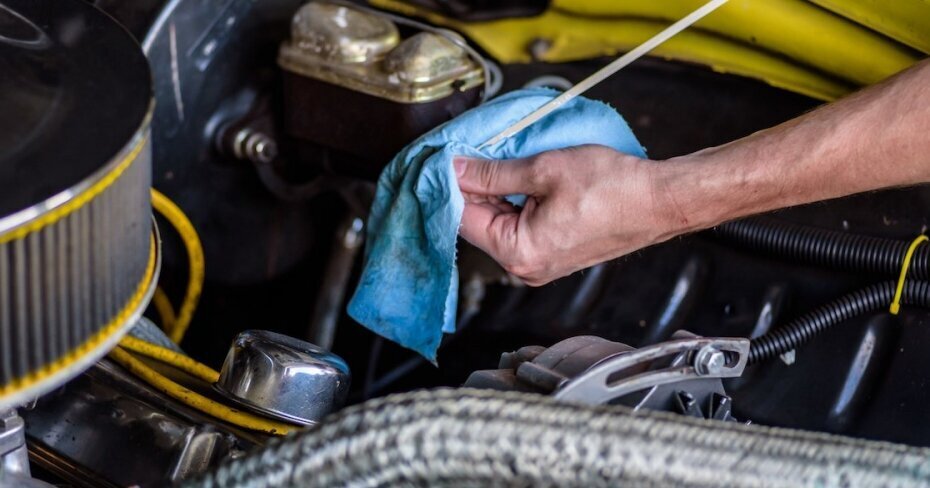5 Car Maintenance Myths Busted
By: Lucy Zemljic on October 17, 2014
When it comes to car maintenance, many drivers assume it’s best to trust the professionals. After all, most mechanics know what they’re doing, and all those oil changes and pricey tune-ups must be necessary... right?
Wrong – in fact, there are many things your mechanics aren’t telling you, things that can end up costing you thousands of dollars in unnecessary car maintenance.
Read on to find out which car care myths are costing you money every year.
1. You should change your oil every 5,000 kilometers.
That’s right – this old nugget of car care wisdom is no longer wise. These days, you don’t really need to get your oil changed every five thousand kilometers. In fact, it’s a downright waste of money. But don’t take our word for it – just take a look at what the pros have to say.
Auto expert Richard Russell explains in a Globe and Mail article that “modern oils last longer and do a much better job during their useful life. Gasoline (and diesel) is much cleaner... engines are built to much higher specs these days. Oil change intervals are much longer than they have ever been.”
CBC news chimes in as well, explaining that “newer cars, advanced technology and better engine oils have prompted manufacturers to extend the range between oil changes from 5,000 to 10,000 kilometres.”
Even the CAA recommends that you “change your oil according to the owner’s manual recommendations,” and these days, that recommendation usually isn’t 5,000 kilometers.
Advances in motor vehicle technology, upgraded equipment and longer-lasting oil now make it possible to go much longer between oil changes. While changing your oil often might have been wise back in the 80s, it’s no longer necessary to make that visit to your auto repair shop every three months.
Some mechanics push that “mandatory” oil change in order to get you back at the shop more often, spending money. They’ll try to get you to invest in a tire rotation, new air filter, or other added expense in order to rack up your bill.
So when should you get your oil changed? It’s different for every model, but according to experts, most modern vehicles don’t need their oil changed for 6,000, 8,000 or even 10,000+ kilometers. The best thing you can do, as always, is refer to your owner’s manual to get the most accurate service intervals for your car.
2. You should get your car tuned up every six months.
Semi-annual tune-ups? Forget it – that mandatory tune-up isn’t mandatory at all.
The truth is that most modern tune-ups consist of your mechanic replacing your air filter and spark plugs. Older cars actually needed to be tuned-up regularly to replace parts like distributor caps, rotors and points, and to keep various calibrations – like the air-fuel mixture, ignition timing, and idle adjustment – dialled in.
Nowadays, your car’s computer constantly checks your vehicle’s components and makes adjustments as needed. The semi-annual tune-up is a thing of the past thanks to computer-controlled engines in our vehicles.
3. Premium gasoline is better than the regular kind.
It seems reasonable to assume that premium fuel equals premium performance. Why feed your car regular old gasoline when you can treat it to premium fuel?
The reason why is simple – studies have found that most cars run well on regular-grade (87 octane) unleaded fuel, even the ones that require premium gasoline. Using a fancy premium gasoline won’t hurt, but it won’t improve your car’s performance either.
The different between regular and premium gasoline is that the latter has a higher octane level (91 or 92) than the former, which means that it’s less prone to pre-ignition problems. If you’ve got a high-compression engine and your car actually needs premium gas to run properly, you’ll need to splurge on higher-octane fuel. Otherwise, don’t bother with fancy gasoline!
4. You really need to flush those fluids more often.
No, you don’t! Many quick-lube-type repair shops push unnecessary fluid flushes on unsuspecting customers in order to make more money off them.
Again, check your owner’s manual to see how often the manufacturer suggests flushing various fluids like coolant. These days, many vehicles run on fluids that don’t have to be changed for more than 160,000 kilometers.
With older vehicles, it was customary to drain the radiator in the spring and fall. Modern cars have coolant fluid that can last two years, and are equipped with a closed system that doesn’t lose coolant over time. And despite what some mechanics might have you believe, it’s not necessary to flush the coolant with every oil change. In fact, you probably don’t need to change that coolant for about five years. Transmission fluids usually don’t need to be flushed or replaced for 40,000 to 48,000 kilometers, and some cars can go more than five years without needing a flush. Manufacturers are even shifting towards fluid that never needs replacing!
5. Signing a blank work form will get your car fixed sooner.
Some people blindly trust their mechanics – after all, they are the professionals. But if you hand over your keys with a “do what you must” attitude, you’re much more likely to get over-charged.
Never sign a blank authorization form – never. You want to get a signed work order with specific estimates for each job. If you sign a blank work order, the mechanic can charge you for whatever work she’s done on your vehicle, and it’ll be hard to prove that you didn’t authorize it. Plus, make sure to check your car’s warranty to see which repairs are covered and which aren’t.
Final Word
Smart drivers stay informed about their vehicles, and ask questions when it comes time to take their rides to the repair shop. That’s not to say that all mechanics are sleazy and will try to cheat you out of your hard-earned money – quite the opposite’s true! Mechanics have an important job, and many of them do good work that’s vital to the performance and efficiency of your vehicle. But when you communicate well with your mechanic, it makes her job easier, and that saves both of you time and money.
Comments


